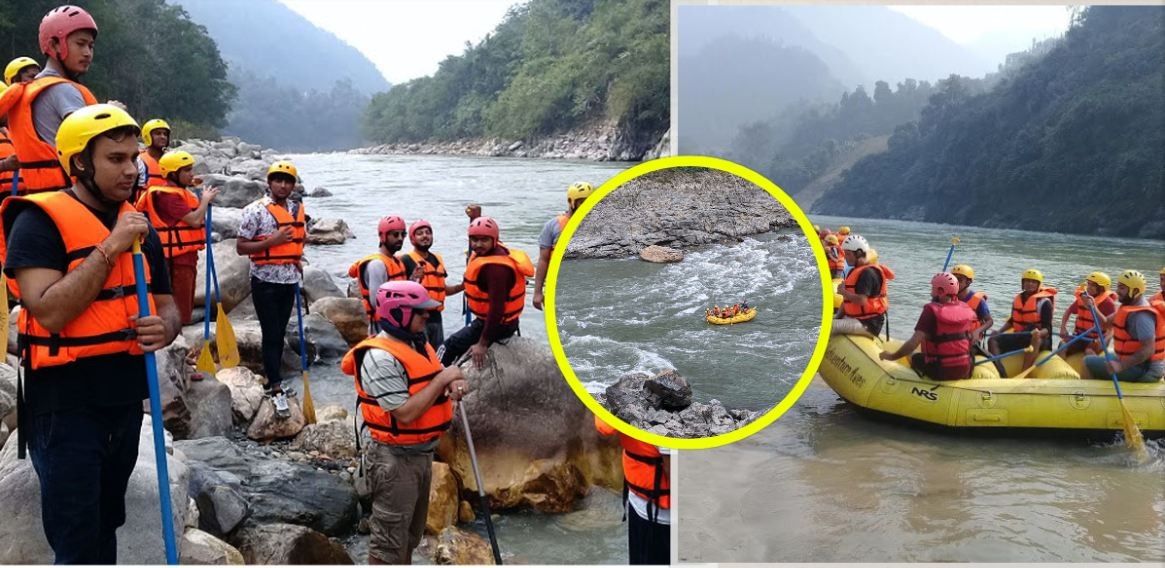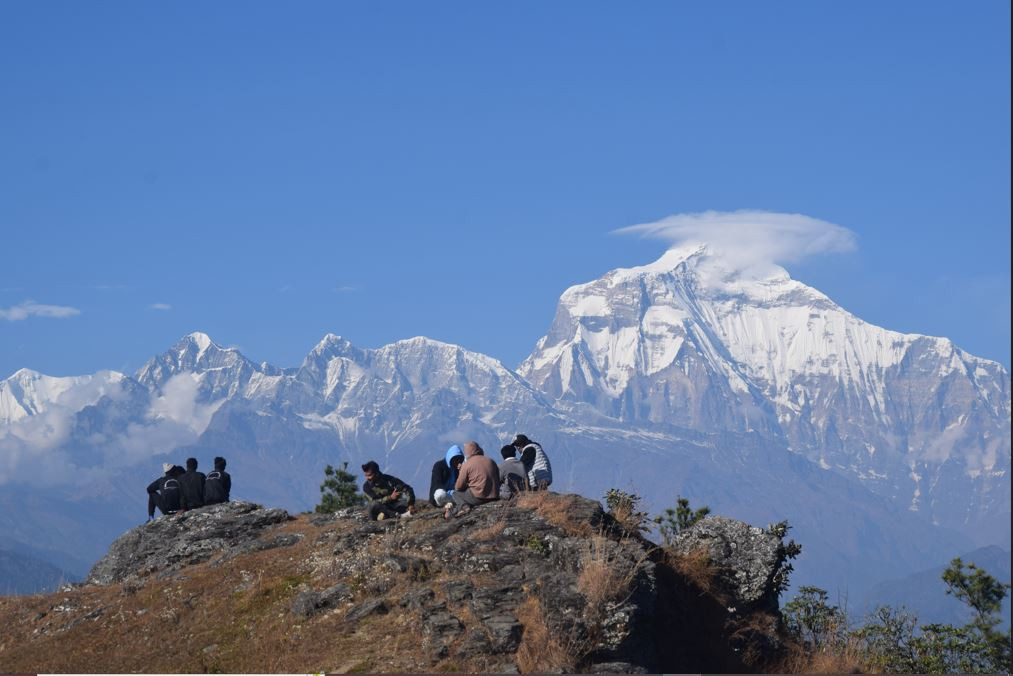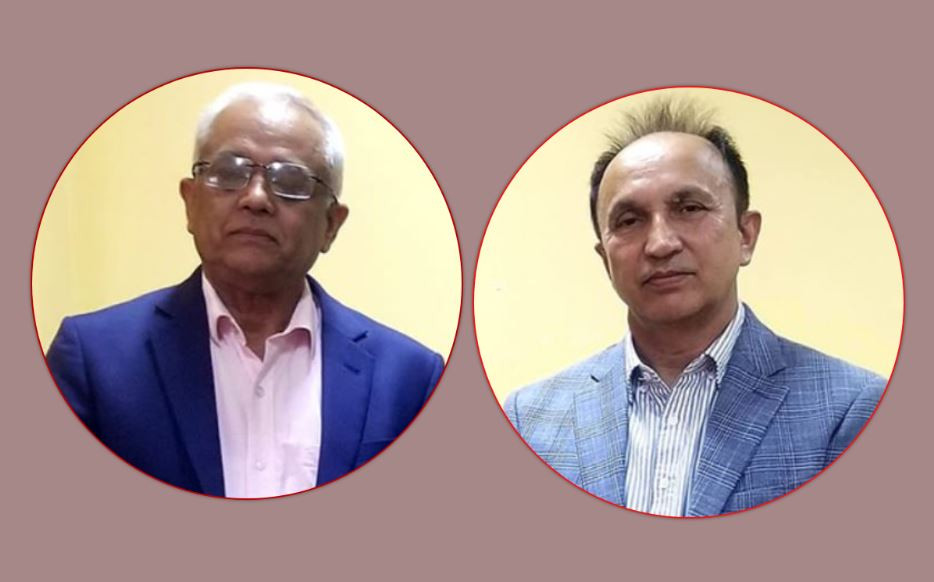Kathmandu / Krishna Gautam was denied entry into a public bus by the driver's assistant when he tried to travel from Old Buspark to Kirtipur.
The bus helper vehemently denied the repeated requests of Gautam, a physically disabled person, pleading from his wheel-chair. The original resident of Kohalpur Municipality-1 in Banke district, currently residing in Kathmadnu, then approached other buses and pleased to take him along but to no avail Gautam, assisted by a police person, somehow managed to get into a public vehicle on that day and reached his destination with great difficulty.
He shared that he has been experiencing such ordeal in the public vehicles repeatedly due to his physical disability. The differently-abled person bemoaned, "Although the Act Relating to the Rights of Persons with Disabilities-2074 BS ensures 50 per cent discount on the transportation fare for the persons with disabilities (PAD), the bus drivers and co-drivers don’t want to bring on board PAD like us, let alone offering us discounts.
" He recalled another unpleasant incident while travelling on a long-route (Kathmadnu-Nepalgunj) bus. Three buses refused to take him along from Kathmandu to Nepalgunj last year. The fourth one agreed but disagreed on providing him 50 per cent discount on the fare.
Visually impaired Teknatha Neupane of Ajirkot Rural Municipality-3 in Gorkha district also has similar tales to tell. During his daily commute, he shows special identity card given to him by the government for his disability to the helper, hoping that it would get him some discount on the fare. "Unfortunately the co-drivers have been expressing their ignorance regarding discount provisions for the people with disabilities," narrated Neupane, who currently resides at Lubhu in Lalitpur.
Co-drivers often pick quarrel with him and threaten him to throw out of the bus if he does not pay the full fare. "A co-driver once threw me out of the bus too when I refused to pay the full fare," he recalled. Although laws are put in place, acts are enacted to secure welfare of the PAD, lax implementation and cavalier attitude of general public towards PAD, people like Gautam and Neupane continue to be at the receiving end of stigma, ordeals and discrimination. As per the Act Relating to the Rights of the Persons with Disabilities-2074 BS, PAD are also entitled to discount on bus, train, airplane among other transportation.
The regulation introduced by the Act also ensures discount for PAD in fare in public transportation. But it's far from effective implementation. He who violates the rights of the PAD or does not fulfill his/her duties towards such people is subjected to fine upto Rs 50,000.
National Federation of the Disabled Nepal President Mitralal Sharma demanded that the State should make effort for effective implementation of the Act Relating to the Rights of the Persons with Disabilities-2074 BS by considering amendment in the Act since no regulation was formulated yet.
It is also imperative to educate and sensitize the local levels about the laws, policies and guidelines regulations formed for the rights of the PAD. Stakeholders should be made more responsible and sensitive to work for disabled people and to enforce the law, policies and directive devised in the best interest of the PAD.
According to Sharma, the Regulation only incorporates fully disabled and severely disabled. The Regulation contradicts with the Act. If even there was favorable regulation, it was far from implementation.
The concerned authority is also not monitoring whether it was being implemented or not." The Act also establishes PADs right to health, healthcare services and equal access to employment but it too is far from implementation.
Nepal is signatory to the Convention on the Rights of People with Disablities-2006 and is obliged to implement all the provisions in the Convention, but it is only limited to the Convention, not in action. Some PAD lamented that whenever they visit healthcare centres with their identity card, they are returned home on various pretexts.
Jamuna Mishra, Chief of Rights of Persons with Disabilities Promotion Section under the Ministry of Women, Children and Senior Citizens, admitted that although rights to education, healthcare services and transportation among others rights for PAD are enforced in the urban areas, there was problem in implementation in the rural areas in lack of knowledge about the provisions for PAD. Lack of sensitization about the Act, according to Mishra, is one of the reasons hindering implementation of the Act.
The Ministry, soliciting the suggestions from the stakeholders, is preparing to revise the regulation relating to the rights of PAD and launch awareness drive for implementation of the Regulations and Act. "
The Ministry's sole effort will not yield any favorable results. All should be active equally for implementation of the Act and Regulation," she said. The government of Nepal has issued the Accessible Physical Structure and Communication Service Guildeline-2069 BS. All these legal documents are the major provisions establishing the rights of PAD in all three levels and ensuring facilities, schemes and concession for them.
Nepal Disabled Women Association Chairperson Tika Dahal argued that the government should revise the regulation and launch awareness drive. She viewed, "Regulation has discriminated among the disabilities. Persons with certain disabilities have been entitled to rights while some are not. The regulation is not disabled women-friendly either. Hence it should be amended and effectively implemented."
The World Bank and the World Health Organization estimates that 10 to15 per cent of the world's population are living with one or the other form of disability and most of them live in developing and least developed countries.
Going by that account, there are around 3 million disabled people in Nepal. The State lacks detailed statistics regarding the disabled population and their status. The census of 2011 shows that only 1.94 per cent of the country's population is disabled but the PAD, social organizations and international communities have not accepted this statistics.
Apart from afore-mentioned legal provisions relating to disability, there are thematic laws, policies and directives ensuring special provisions for the PAD. Local Government Operation Act-2074 BS, Social Security Act-2075 BS, Civil Service Act-2049 BS, Education Act-2028 BS, National Education Policy-2078 BS are the major ones.
National Disabled Youth Network President Mahendra Thapa viewed that the government is primarily responsible to enact the Act Relating to the Rights of Persons with Disabilities-2074 BS. The government should also do monitoring whether the acts and laws were effectively enforced or not. Raising awareness about the provisions, entitlements to the PAD is also responsibility of the government, he opined.
PAD is known as marginalized community in Nepal. They often lag behind when it comes to exercising fundamental rights, accessing equal opportunities, human rights, basic facilities among others due to the problems they face in accessing physical infrastructures and communication tools and technology.
They are also subjected to discrimination, violence and ill-treatment. The Government of Nepal has pledged to implement Sustainable Development Goals (SDGs)'s all 17 goals till 2030 and has reaffirmed its commitment to leave no one behind in its implementation of the SDGs. Although it is evident that the PAD are one of the beneficiaries of the SDGs, no any government plan, policies and programme seem to have made any differences in the lives of the disabled ones.
Former President of National Federation of Disabled Nepal Sudarshan Nepal opined that disabilities empowerment academy should be formed for implementation of the acts and laws and all three levels should coordinate efforts to work for the greater good of the PAD. A national survey on the living conditions among individuals with disabilities was conducted by SINTEF in partnership the National Federation of Disabled Nepal in 59 districts in Nepal in 2016.
The survey found that the PAD had 70 to 90 per cent less access to basic services and facilities compared to the normal people. One in eight such individuals used an assistive device (wheelchairs, white cane etc). Among the school-going children with disabilities, 40 per cent were still out of school.
Much to the dismay, the government agencies were not putting in enough effort to bring them to the school A report unveiled by UNICEF stated that among the children (5-12 years) with disabilities, 30 per cent were out of school.
The government report shows that among the 973,900 children studying in 35,993 Early Child Development Centres across the country, the number of children with disabilities stood at 3,270. In terms of health status, among the surveyed PAD, the health condition of 81.4 PADs was at risk in comparison to normal persons, and about 61 per cent of those having vulnerable health condition suffered from various sorts of mental health problems.
The Federation's study in 2019 showed that 67 per cent of women with disabilities were victims of various forms of violence and 63 per cent of them were youth. Fifty-two per cent of women with disabilities do not have access to information on sexual and reproductive health.
Only 16 per cent of women victims of violence filed a complaint, mainly because they did not have access to justice and the grievance registration system and hearing process for persons with disabilities. Violence against women with disabilities occurs in 21 per cent of educational institutions.
Many women with disabilities have not been able to exercise their right to reproductive health. Similarly, the fact that people with disabilities are most affected by disasters and humanitarian crises has been revealed during Gorkha Earthquake in 2015, the Federation said. Often in the event of a disaster, PADs are more vulnerable as neither are the emergency camps disability friendly, nor the early warning systems. There is also lack of statistic on PAD.
Rescue workers lacking knowledge about disabilities, lack of orientation and training for them among others had also pushed the PAD into vulnerable state, said Federation President Sharma. Scores of PAD have been affected by COVID-19 epidemic. Federation's study showed that more than 40 per cent of PAD lost their regular source of income and they were deprived of relief materials in many places during the COVID-19 induced lockdown.
Due to the lockdown, people with disabilities who were receiving regular intensive healthcare services were deprived of regular health care. Furthermore, they also did not have access to information on COVID-19 due to which many PAD infected with COVID-19 suffered heavily in lack of disable-friendly quarantine and isolation centre. Stakeholders stress that provincial level and local level's capacity must be enhanced to work for the PADs.
Also, each ministry should incorporate legal provisions for PAD along with budget in their annual plan and policies to establish rights of the PAD. Disability rights activists emphasize that the local and provincial government should use PAD's experience and expertise while formulating plan and programmes for the PAD.
The local and provincial government should also create enabling environment where PAD could have access to come together, discuss and consult with each other.
- Sushil Darnal









![[Feature] :Rights of Persons with Disabilities: Lax implementation of Act push PAD in receiving end](https://www.arthadabali.com/media-file/images/2021/12/1638782746-KUTpe.jpg)



